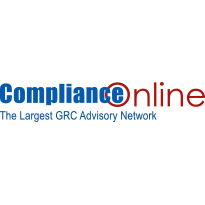Lifecycle Management of Analytical Methods and Procedures - Integrate design, development, validation, and ongoing performance verification according to new FDA and USP guidelines
Suisse, Zürich
Results of analytical methods and procedures are used as the key basis to make important decision during development and manufacturing of pharmaceutical products. Therefore all regulatory agencies expect the regulated industry to have procedures and measurements in place to ensure highest reliability, accuracy and precision of such methods and procedures. The procedures should cover all lifecycle phases from design, development, validation to on-going routine use.
Managing analytical methods and procedures according to the lifecycle approach got highest attention from regulatory agencies and industry task forces. For example, the new FDA guidance “Analytical Procedures and Methods Validation for Drugs and Biologics” starts with suggestions for method development and includes a chapter on Lifecycle Management of Analytical Procedures. USP’s Validation and Verification Expert panel just proposed a new general chapter 1220: The Analytical Procedure Lifecycle.
The 2-day workshop will give attendees the background to understand the new Analytical Procedure Lifecycle requirements and even more importantly it will focus on strategies and provide tools to implement most critical requirements. It also provides templates and examples to develop inspection ready documentation. Interactive workshop exercises will be dispersed into and between the presentations. About 50% of the total time will be dedicated to practical sessions with life examples.. After the course a variety of tools such as SOPs, validation examples and checklists will be readily available at no additional cost on a dedicated website that can be used by attendees to easily implement what they have learned in the course.
Objectives :
- Learn about the regulatory background and requirements for managing the lifecycle of analytical methods and procedures
- Understand current and future industry trends: revised USP chapters 1225 and proposed chapter 1220: "The Analytical Procedure Lifecycle", and Quality by Design (QbD) principles for method development and validation
- Learn how to plan, execute and document design, development and validation of methods developed in-house
- Understand the principles of lifecycle management for compendial procedures and for managing method transfer
- Be able to explain your company's strategy for analytical procedure lifecycle
- Understand risk management strategies throughout the procedure lifecycle
- Be able to design and execute a procedure specific control strategy based on risk
- Be able to justify and document decisions about type and extend of revalidation after method changes
- Be able to define and demonstrate FDA, EU, USP and ICH compliance to auditors and inspectors
- Be able to develop inspection ready documentation during on-going routine operation
- Understanding what questions will be asked during audits and inspections and how to answer them
Handouts / Bonuss material for easy implementation :
- 70-page primer: Validation of analytical methods (authored by Dr. Ludwig Huber)
- 10 SOPs related to method life cycle, validation, verification, transfer, quality by design, review and change of methods
- 5 Checklists, templates and examples for method lifecycle approach, validation, review, verification and for transfer of methods,
- Example acceptance criteria for different analytical tasks
- Example validation report
Compliance online location :
- ComplianceOnline.com, MetricStream Inc.
- 2479 East Bayshore Road
- Suite 200
- Palo Alto, CA 94303
Registration contact :
- Name : Mohammad Irshad
- Email: Mohammad.Irshad@ComplianceOnline.Com
- Phone: +1 650-332-0381
- Fax: +1 650-565-8542
Day 1 : 8h30 AM - 4h30 PM
- 08.30 AM - 09.00 AM: Registration
- 09.00 AM: Session Start
- Introductions and Agenda Review
- Lectures and Workshop Exercises
- Lecture 1: Regulatory background and requirements
- The importance of analytical procedures
- Lifecycle approach support from FDA, ICH and USP
- USP approach for method validation: New/revised Chapters 1200, 1210, 1220, 1225
- Learnings from the new FDA, WHO and PDA method validation guidelines
- Linking the procedure lifecycle to the quality system
- The importance of and steps for risk management
- Lessons from recent FDA Warning Letters
- Recommendations for cost effective implementation
- Lecture 2: Going through the new FDA Method Validation guidance - with focus on procedure lifecycle recommendations
- Scope and regulatory meaning of the guidance
- Recommendations for integrated procedure lifecycle
- Expectations for quality risk assessment , Quality by Design (QbD), Multivariate experiments, system suitability testing, statistics, knowledge management
- Equipment operational qualification, trend analysis
- Revalidation vs. ongoing evaluation
- Lecture 3: Preparing your lab for compliant validation studies
- Analytical Instrument qualification
- Part 11/Annex 11 compliance of computer systems
- Validation of chromatographic data systems
- Validation and control of Excel spreadsheets
- Qualification of reference standards and materials
- Lecture 4: The lifecycle overview on integrated design development, validation, and on ongoing performance verification
- Advantages of the new approach
- Understanding the proposed USP chapter 1220
- Key steps for design, development, validation and ongoing performance verification
- Integrated lifecycle and QbD: Similarities, differences
- Regulatory significance of the new approach
- Integrating method transfer and compendial methods
- Application of risk management through the life cycle
Day 2 : 8h30 AM - 4h30 PM
- Lectures and Workshop Exercises
- Lecture 5: The analytical target profile
- Comparison with the scope of current methods
- Advantages and limitations of the ATP approach
- Target measurement uncertainty (TMU)
- Considerations for establishing an ATP
- Incorporating current USP, ICH and FDA guidance into the ATP
- Constructing an ATP for existing methods
- Examples for ATP's with exercises
- Lecture 6: Procedure design and development
- Knowledge Gathering: what and how
- Risk management: assessment, evaluation and control
- Analytical control strategy
- Typical control examples
- Illustration of controls using Fishbone diagrams
- Knowledge management as an important factor in ensuring the acquiring, analyzing, storing and disseminating information
- Lecture 7: Procedure Performance Qualification (Validation)
- Developing a validation/qualification plan and SOP
- Going through ICH Q2 validation and test parameters:
- Accuracy, precision, intermediate precision, specificity, LOD, LOQ, linearity, range, robustness, ruggedness
- Examples for design and execution of test experiments
- Examples for application specific acceptance criteria
- Parameters along the drug life (GLP, GCP, GMP)
- Evaluation of test results: using statistical models
- Going through an example validation report
- Lecture 8: Ongoing Performance Verification
- Objective of on-ongoing performance verification
- Examples for monitoring method performance: system suitability testing and quality control samples
- Adequate handling of method changes vs. adjustments
- Revalidation of analytical methods: when, what to test
- Handling of out-of-expectation situations
- Examples for continuous improvements
Résumé
Dr. Ludwig Huber, Ph.D., is the chief advisor and editor of www.labcompliance.com the global online resource for validation and compliance. He is the author of the books "Validation and Qualification in Analytical Laboratories" and "Validation of Computerized Analytical and Networked Systems, Informa Healthcare, and of the 70-page primer: Validation of Analytical Methods". He has given more than 300 presentations mainly on GLP/GMP, 21 CFR Part 11 and Validation around the world. This included seminars, workshops and presentations for the US FDA, China CFDA, , ISPE, PDA, PIC/S and several other industry organizations and national health care agencies. For more information, please visit Dr.Huber's website www.ludwig-huber.com/qualification .

